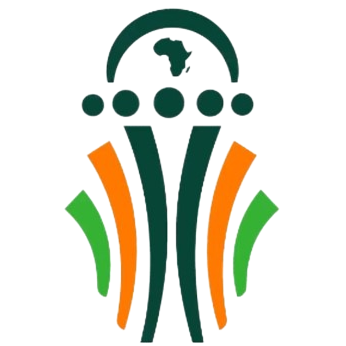Nigeria came agonisingly close to scoring due to an indirect freekick, which was heavily contested when it was awarded. We examined if it was warranted.
Nigeria played out a 1-1 draw in their CAF World Cup qualifier clash against Zimbabwe; in what was a drab affair for most of the encounter, a moment of heated exchanges stood out.
The Super Eagles travelled to Butare, Rwanda, where they faced Zimbabwe at Stade Huye as they looked to get their World Cup qualifier back on track, but, as was the case against Lesotho, they faltered, settling for a mere point.
)
14:56 - 19.11.2023
Nigerians react as absent-minded Uzoho gets beaten from 35-yards against Zimbabwe
Francis Uzoho is subject to scrutiny once again, as Nigerians fault him for a freekick goal conceded against Zimbabwe.
)
15:57 - 19.11.2023
Zimbabwe 1-1 Nigeria: Iheanacho's goal not enough as toothless Super Eagles fail Nigerians again
The 2026 FIFA World Cup is looking bleak by the minute for Nigeria after the Super Eagles failed to shine against Zimbabwe.
The Warriors scored first, and Nigeria had to rally from behind. The Super Eagles came closest to an equaliser in the 57th minute of the game when they were handed an indirect freekick—which caused an uproar—before Kelechi Iheanacho eventually restored parity in the 67th minute.
Nigeria’s indirect freekick
Djiboutian referee Souleiman Ahmed Djama raised his hand above his head before the hour mark to signify that he had awarded the Super Eagles an indirect freekick.
This decision that seemingly presented the visitors with a high percentage scoring chance felt unearned to the Zimbabweans, and they held up the game for a brief period, accosting the referee and pleading their case.
)
The decision had been made, however, and Nigeria had to come up with a winning free-kick routine to be taken inside the opposition’s box. The eventual attempt was a well-worked one; Iheanacho played a swift ball into Boniface, who was hanging around the goal poll, and the Leverkusen striker’s redirect towards the goal needed a goalline clearance to keep the scoreboard lopsided.
Why Nigeria was awarded the indirect freekick
Nigeria were awarded an indirect freekick for an infringement by Donovan Bernard, the Zimbabwean goalkeeper. The Chicken Inn shot-stopper made a deliberate and blatant attempt at time-wasting as he rolled on the floor seconds after intercepting a failed cross from Bright Osayi-Samuel.
A goalkeeper can concede an indirect freekick inside the penalty box against his own team by doing any of the following:
)
1- Back-Pass Violation: When a teammate deliberately passes the ball back to the goalkeeper using their feet, if the goalkeeper touches the ball with their hands, it results in a back-pass offence. Consequently, the opposing team is awarded an indirect free kick from the spot where the goalkeeper made contact with the ball.
2- Holding the Ball for More Than Six Seconds: The Laws of the Game specify that a goalkeeper cannot possess the ball for more than six seconds. If the goalkeeper exceeds this time limit, an indirect free kick is granted to the opposing team from the location where the goalkeeper touched the ball.
3- Handling a Throw-In: If a teammate throws the ball directly to the goalkeeper and the goalkeeper catches or touches the ball with their hands, it constitutes an illegal handling of a throw-in. As a result, the opposing team is awarded an indirect free kick from the spot where the handling occurred.
On this evidence, it is clear that, contrary to the opposition from the Zimbabweans, the decision to award the Super Eagles an indirect free-kick was the right one.
Related content
)
17:04 - 19.11.2023
Zimbabwe vs Nigeria: 3 mistakes Jose Peseiro made in Super Eagles draw
The Super Eagles of Nigeria have failed to secure another three points for the second time in the space of three days.
)
15:57 - 19.11.2023
Zimbabwe 1-1 Nigeria: Iheanacho's goal not enough as toothless Super Eagles fail Nigerians again
The 2026 FIFA World Cup is looking bleak by the minute for Nigeria after the Super Eagles failed to shine against Zimbabwe.
)
14:56 - 19.11.2023
Nigerians react as absent-minded Uzoho gets beaten from 35-yards against Zimbabwe
Francis Uzoho is subject to scrutiny once again, as Nigerians fault him for a freekick goal conceded against Zimbabwe.
)
05:06 - 19.11.2023
Zimbabwe vs Nigeria: 5 Super Eagles players Peseiro MUST start to avoid disaster in Butare
Nigeria Super Eagles cannot afford another slip-up in the FIFA World Cup 2026 African qualifiers when they take-on Zimbabwe.
)
02:08 - 19.11.2023
Zimbabwe v Nigeria: 3 changes Peseiro needs to make to guarantee victory for the Super Eagles
The Super Eagles of Nigeria have a crucial World Cup Qualifier coming up against Zimbabwe and here is what Jose Peseiro must do before this must-win game.
)
18:39 - 18.11.2023
15-year-old Chidozie Obi-Martin scores 10 goals as Arsenal U16s maul Liverpool
The Danish youth prodigy Chidozie Obi-Martin has earned comparisons with Super Eagles forward Victor Osimhen and showed why after scoring 10 goals in one game against Liverpool's U-16 side
)
16:03 - 18.11.2023
2026 CAF WCQ: Nigeria Super Eagles play catch-up as South Africa take advantage of slip-up to go top
South Africa’s Bafana Bafana are now top of Group C, with Nigeria’s Super Eagles trailing in third.
)
14:57 - 18.11.2023
Nigerian journalist begs ex-Super Eagles boss Gernot Rohr to draw South Africa in 2026 WCQ
Gernot Rohr and his Benin Republic side are facing South Africa in a 2026 WCQ in Group C that includes Nigeria.
)
11:56 - 18.11.2023
Feckless Peseiro has no answers, but must not be sacked
The Super Eagles plumbed new depths against Lesotho, and have it all to do against Zimbabwe. Peseiro, however, must be allowed to see his contract through to February, irrespective of his cluelessness.

 AFCON 2025
AFCON 2025
)